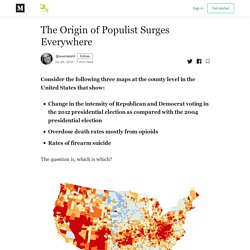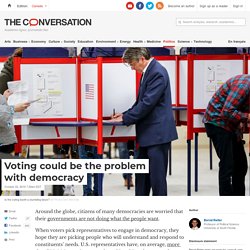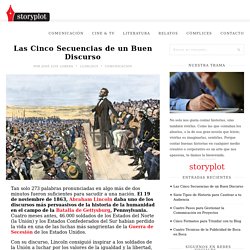

The Origin of Populist Surges Everywhere - the code economy - Medium. Consider the following three maps at the county level in the United States that show: Change in the intensity of Republican and Democrat voting in the 2012 presidential election as compared with the 2004 presidential electionOverdose death rates mostly from opioidsRates of firearm suicide The question is, which is which?

Here they are again, with legends and sources: Death by Overdose Firearm Suicide Rate Change in the Intensity of Republican / Democrat Voting As you can see, with exception of the “Sun Corridor” and the Gulf Coast, the blue regions in the above maps correspond pretty much directly to US “megaregions” — the country’s major agglomerations of cities: We are indeed in a world where the rich get richer. High land rents in San Francisco, New York, Boston, and the like don’t just reduce economic mobility in those cities; they also reduce geographical mobility across cities — which has implications for the country as a whole.
Population Growth/Decline 2002–2003. 72 Philosophy Books Everyone Should Read. Why am I here?

How can I live a good life? What does it mean to have a mind and be a person? Since the days of antiquity, philosophers have puzzled over fundamental questions like these that sit at the very heart of our lived experience and interactions with the world. Solving these problems is not merely about increasing our knowledge of the world, to fill up academic textbooks and sit on library shelves, but to impart wisdom to aid us as we navigate through life's uncertainties and its profoundest mysteries. November marks the anniversary of UNESCO's commitment to celebrate World Philosophy Day, an occasion to consider the impact of philosophy and big ideas around the world and across cultures. In 2017, we spoke to a number of leading philosophers to ask them why philosophy matters and what it has meant to them in their personal and professional lives (which you can read here, alongside a poem by Kwame Anthony Appiah).
—David Maclean. Voting could be the problem with democracy. Around the globe, citizens of many democracies are worried that their governments are not doing what the people want.

When voters pick representatives to engage in democracy, they hope they are picking people who will understand and respond to constituents’ needs. U.S. representatives have, on average, more than 700,000 constituents each, making this task more and more elusive, even with the best of intentions. Less than 40% of Americans are satisfied with their federal government. In my work as a comparative political scientist working on democracy, citizenship and race, I’ve been researching democratic innovations in the past and present. In my new book, “The Crisis of Liberal Democracy and the Path Ahead: Alternatives to Political Representation and Capitalism,” I explore the idea that the problem might actually be democratic elections themselves.
In the beginning Democracy started as self-rule, where average citizens took turns in running public affairs. Randomly select representatives. Las Cinco Secuencias de un Buen Discurso - storyplotstoryplot. Tan solo 273 palabras pronunciadas en algo más de dos minutos fueron suficientes para sacudir a una nación.

El 19 de noviembre de 1863, Abraham Lincoln daba uno de los discursos más persuasivos de la historia de la humanidad en el campo de la Batalla de Gettysburg, Pennsylvania. Cuatro meses antes, 46.000 soldados de los Estados del Norte (la Unión) y los Estados Confederados del Sur habían perdido la vida en una de las luchas más sangrientas de la Guerra de Secesión de los Estados Unidos. Con su discurso, Lincoln consiguió inspirar a los soldados de la Unión a luchar por los valores de la igualdad y la libertad, y sus palabras finales “gobierno del pueblo, por el pueblo y para el pueblo» pronto se convirtieron en sinónimas de democracia. Pero ¿cómo fue posible que un discurso tan breve y episódico haya sido laureado en los anales de la historia? Diseccionando el texto íntegro del discurso de Gettysburg, repasamos estos cinco secuencias que caracterizan a un buen discurso:
Message. Message.
Three post-war liberals strove to establish the meaning of freedom - Rawls rules. Human Nature and the Ethical Life by Massimo Pigliucci. Philosophers have been debating human nature for centuries, but in an era of increasing political vitriol and partisanship, the issues at stake are gaining new relevance.

To understand what we should expect from our leaders, we must first consider what to expect of ourselves. NEW YORK – Does human nature exist? The answer has implications for anyone concerned about ethics. In an era defined by amoral political leadership and eroding social values, thinking about the essence of humanity has never been more important. The philosophical concept of “human nature” has a long history. Ancient Chinese philosophers like Confucius and Mencius believed human nature was innately good, while Xunzi thought it was evil and lacked a moral compass. Modern Western philosophers, writing in the seventeenth and eighteenth centuries, expanded on these ideas. By contrast, Jean-Jacques Rousseau believed that human nature is malleable, but that our original state was one without reason, language, or community.
How to Use Mind Maps to Unleash Your Brain's Creativity and Potential. Philosophy and Logic.